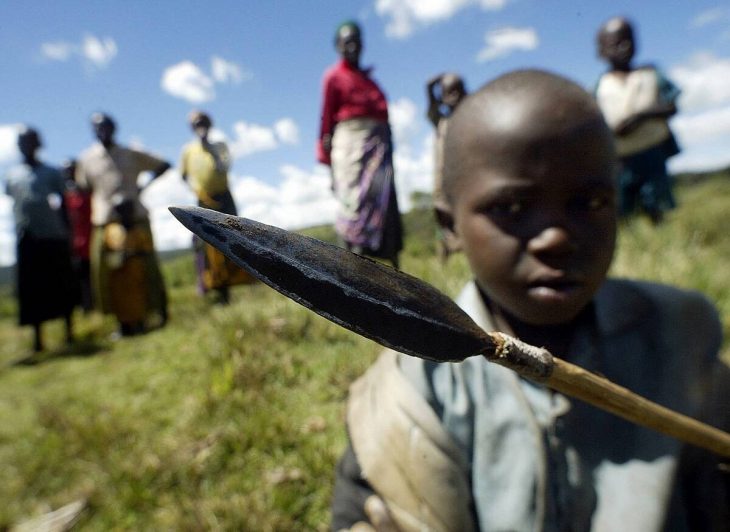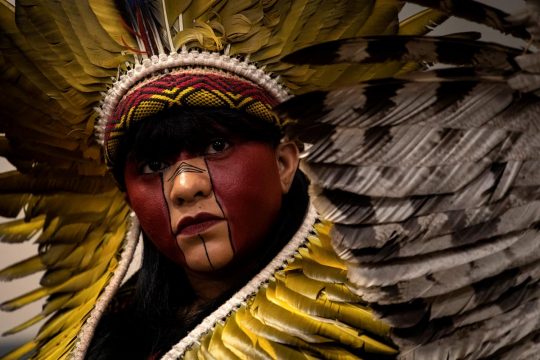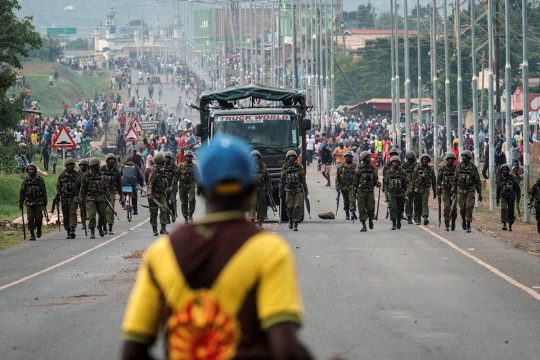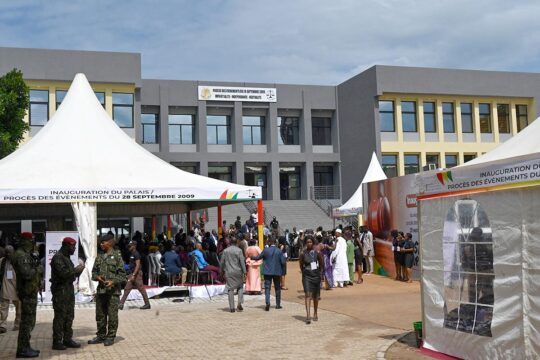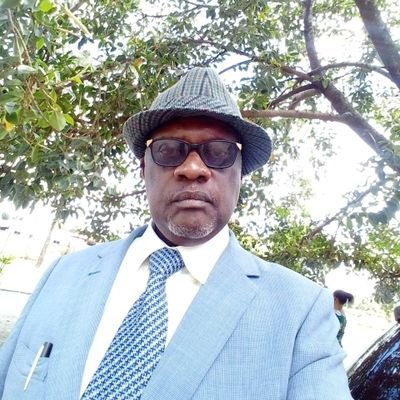The judgment handed down by the African Court on Human and Peoples' Rights (ACHPR), based in the northern Tanzanian town of Arusha, is historic. The African continent’s judicial institution ordered the Kenyan state to pay financial and moral reparations for the damage suffered by the indigenous Ogiek community over decades.
According to the reparations judgment, Kenya must take all necessary measures “to identify, in consultation with the Ogiek and/or their representatives, to delimit, demarcate and title Ogiek ancestral land and to grant de jure collective title to such land in order to ensure the permanent use, occupation and enjoyment, by the Ogiek, with legal certainty”.
In the event that on "objective and reasonable grounds" the Kenyan state is unable to return the land, “it must enter into negotiations with the Ogiek through their representatives, for purposes of either offering adequate compensation or identifying alternative lands of equal extension and quality to be given for Ogiek use and/or occupation”.
Thirteen-year judicial battle
The Ogiek people, whose name means "keeper of all plants and game", are one of the last hunter-gatherer communities in Kenya. Since time immemorial, this indigenous minority has lived in the Great Mau forest estate, a territory covering 400,000 hectares in the Rift Valley. But from the time of colonization to the present day, members of this community have been subject to evictions, often violent, resulting in the destruction of their property and even loss of life.
For the Kenyan government, these evictions are aimed at curbing the degradation of this forest and protecting its water reserves.
For the Ogiek, who see themselves as the protectors of the Mau Forest, the main causes of environmental degradation are encroachment by other non-indigenous groups and government decisions to establish settlements and grant logging concessions.
Their legal battle before the ACHPR lasted nearly 13 years. The case was initiated in November 2009 by two NGOs -- Centre for Minority Rights Development (CEMIRIDE) and Minority Rights Group International (MRGI) -- who, acting on behalf of the Ogiek community, filed a complaint with the African Commission on Human Rights regarding an eviction notice that had just been issued by the Kenya Forest Service, requiring the Ogiek and others living in the Mau Forest to leave within 30 days.
Citing the serious consequences of the eviction on the political, social and economic survival of the Ogiek community and the risk of irreparable harm, the Commission immediately asked the Kenyan government to suspend implementation of the notice. Then, given the silence of the Kenyan authorities, the Commission seized the African Court.
First judgment has no effect
In May 2017, the Court ruled that by evicting the Ogiek from their ancestral lands, the government of Kenya had violated seven of the articles of the African Charter on Human Rights including the rights to life, non-discrimination, property, access to natural resources, culture, religion and development.
Pending its judgment on reparations, the Court then ordered Kenya to take all necessary measures within a reasonable time to remedy the violations found and to report to the Court on the measures taken within six months.
In its reparations judgment, the ACHPR noted that the Kenyan state “has not been forthcoming with information about the concrete steps that it has been taking towards the implementation of the judgment on merits”.
The Kenyan government did form a working group to review the implementation of the judgment. But the working group did not include any representatives of the Ogiek, nor were the Ogiek consulted in its work, contrary to the terms of the judgment requiring that in all matters affecting them the Ogiek must be consulted. The working group apparently never issued a report.
Even worse, in July 2020, in the midst of the Covid-19 pandemic, 300 Ogiek families were evicted from their land by the Kenyan Forest Service, leaving their homes behind in ashes, according to Reuters news agency.
More than 1.3 million dollars in reparations
The material damages resulting from such evictions - loss of homes and farms, loss of livestock, loss of income from forestry - led the court to order Kenya to pay 57,850,000 Kenyan shillings (US$487,400), “free from any government tax, as compensation for the moral prejudice suffered by the Ogiek”.
The Court also noted that the Ogiek suffered moral damages that "include both the suffering and distress caused to the direct victims and their families, as well as the damage to values that are very important to them”.
The refusal by the Kenyan State to recognize them as a full-fledged tribe, granted to other groups, the fact that they are prevented from continuing to practice their religion, and the expulsion from the area of the Mau forest where they carry out their activities and cultural practices, constitute this moral harm. For the Court, the violations found concern rights that are central to the very existence of the Ogiek. The State is therefore obliged to compensate the Ogiek for the moral damages caused to them, which the Court set at one hundred million Kenyan shillings (US$842,500).
According to the judgment, the government of Kenya must establish a community development fund for the benefit of the Ogiek, which should be the repository of all funds ordered as reparations in this case.
The Court further ordered that where concessions and/or leases have been granted on Ogiek ancestral lands to non-Ogiek and other private persons or companies, the State must engage in dialogue and consultation between the Ogiek and/or their representatives and other relevant parties with a view to agreeing on whether or not to allow the continuation of the activities of these non-Ogiek in the form of leases and/or royalty and benefit sharing with the Ogiek, in accordance with the Community Lands Act. In the event that land has been allocated to non-Ogiek and a compromise cannot be reached, the State must either compensate the third parties involved and return the land to the Ogiek or agree on appropriate compensation for the Ogiek.
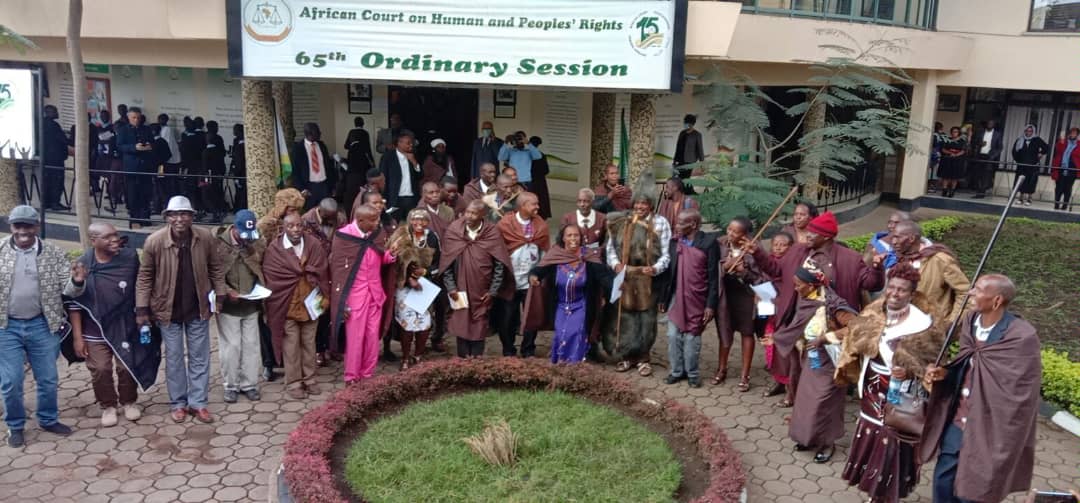
Only 10% of ACHPR decisions executed
In its 2017 ruling, the Court had already recognized the Ogiek as an indigenous people who are part of the Kenyan population, with a special status and requiring special protection due to their vulnerability. Following this recognition, the Court ordered that the Kenyan state take all necessary legislative, administrative and other measures to effectively ensure full recognition of the Ogiek as an indigenous people of Kenya, including, but not limited to, full recognition and protection of their language and cultural and religious practices.
The main challenge now is whether Kenya will implement the Court's decision. The ACHPR does not have the direct power to force the Kenyan government to implement its decisions. The court has ordered a report on the implementation of its orders within 12 months. A hearing will then take place.
"We are hopeful that the government will implement the Court's decisions, although we know that there is still little political will to implement [its] decisions," said Daniel Kobei, director of the Ogiek People's Development Programme, when contacted by telephone. "We are even more pleased that the Court, in its ruling on reparations, made things clearer with regard to implementation of its decisions."
Enforcement of its decisions is one of the biggest problems for the ACHPR. Only 10% of its decisions have so far been implemented, while only 33 of the 54 countries that have signed the Protocol have ratified it. Only eight countries have signed the declaration allowing their citizens and NGOs based in their territory to bring cases to the Court. Four countries - Rwanda, Tanzania, Benin, and Côte d'Ivoire - have withdrawn their declarations.
The hopes of the Ogiek
Kenyan authorities were not immediately available to comment on the ACHPR ruling. The Ogiek, however, are preparing for implementation of the Court's decisions in their favour. "Yes, the government has its part to play, but we are also preparing on our side, especially with regard to community land title and the community development fund," says Kobei. "With the capitalism and individualism in today's society, not everyone has the same understanding. So we have started awareness and explanation seminars in the Ogiek community so that everyone understands the meaning and interest of this community title, so that we can work together for our development," he says.
Francisco Cali Tzay, United Nations Special Rapporteur on the Rights of Indigenous Peoples, also welcomed the ruling of the ACHPR. “I welcome this unprecedented ruling for reparations and acknowledge that the decision sends a strong signal for the protection of the land and cultural rights of the Ogiek in Kenya, and for indigenous peoples’ rights in Africa and around the world”, he said in a statement.


